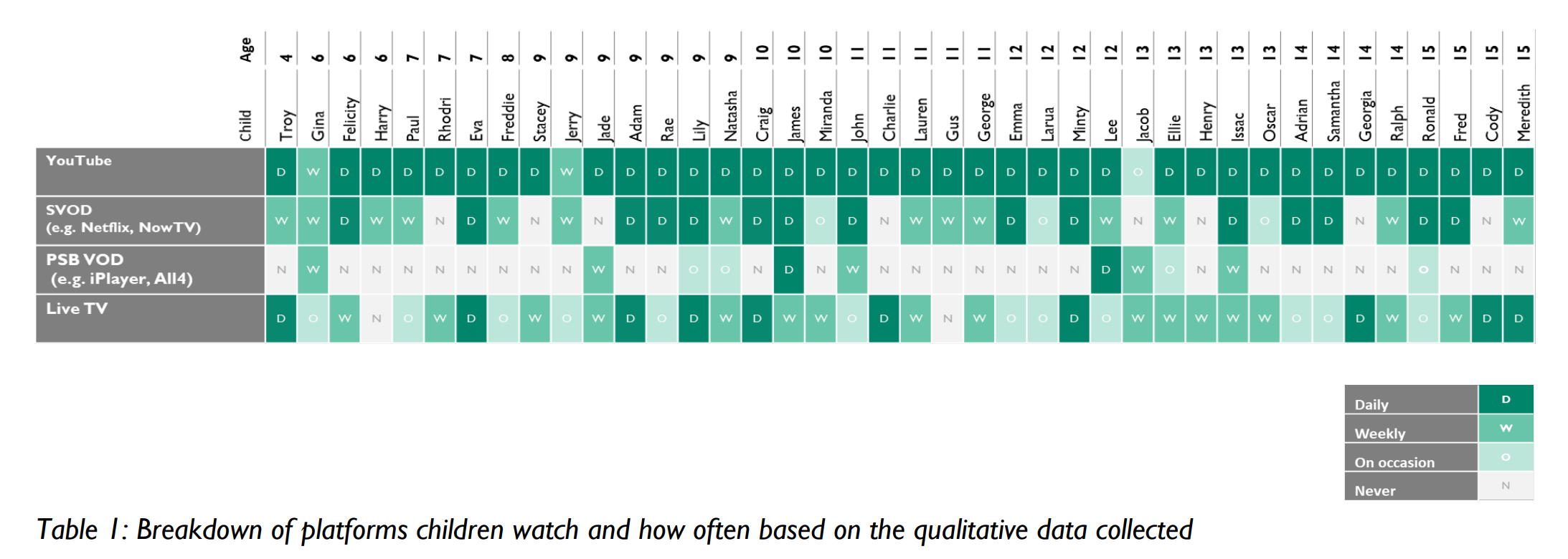What UK children are watching (and why)
There were only 40 children as part of this Ofcom research, and (as far as I can tell) none were in the North East of England where I live. Nevertheless, as parent to a 12 year-old boy and eight year-old girl, I found the report interesting.
Key findings:I've recently volunteered as an Assistant Scout Leader, and last night went with Scouts and Cubs to the ice-rink in Newcastle on the train. As I'd expect, most of the 12 year-old boys had their smartphones out and most of the girls were talking to one another. The boys were playing some games, but were mostly watching YouTube videos of other people playing games.
- While some children took part in organised after school clubs at least about one a week, not many of them did other or more spontaneous activities (e.g. physically meeting friends or cultivating hobbies) on a regular basis
- Many children used social media and other messaging platforms (e.g. chat functions in games) to continually keep in touch with their friends while at home
- Often children described going out to meet friends face-to-face as ‘too much effort’ and preferred to spend their free time on their own at home
- While some children managed to fit screen time around other offline interests and passions, for many, watching videos was one of the main activities taking up their spare time
- YouTube was the most popular platform for children to consume video content, followed by Netflix. Although still present in many children’s lives, Public Service Broadcasters Video On Demand] platforms and live TV were used more rarely and seen as less relevant to children like them
- Many parents had attempted to enforce rules about online video watching, especially with younger children. They worried that they could not effectively monitor it, as opposed to live or on-demand TV, which was usually watched on the main TV. Some were frustrated by the amount of time children were spending on personal screens.

All kids with access to screen watch YouTube. Why?
Until I saw my son really level up his gameplay by watching YouTubers play the same games as him, I didn't really get it. There's lots of moral panic about YouTube's algorithms, but there's also a lot to celebrate with the fact that children have a bit more autonomy and control these days.
- The appeal of YouTube also appeared rooted in the characteristics of specific genres of content.
- Some children who watched YouTubers and vloggers seemed to feel a sense of connection with them, especially when they believed that they had something in common
- Many children liked “satisfying” videos which simulated sensory experiences
- Many consumed videos that allowed them to expand on their interests; sometimes in conjunction to doing activities themselves, but sometimes only pursuing them by watching YouTube videos
- These historically ‘offline’ experiences were part of YouTube’s attraction, potentially in contrast to the needs fulfilled by traditional TV.
The appeal of YouTube for many of the children in the sample seemed to be that they were able to feed and advance their interests and hobbies through it. Due to the variety of content available on the platform, children were able to find videos that corresponded with interests they had spoken about enjoying offline; these included crafts, sports, drawing, music, make-up and science. Notably, in some cases, children were watching people on YouTube pursuing hobbies that they did not do themselves or had recently given up offline.Really interesting stuff, and well worth digging into!
Source: Ofcom (via Benedict Evans)